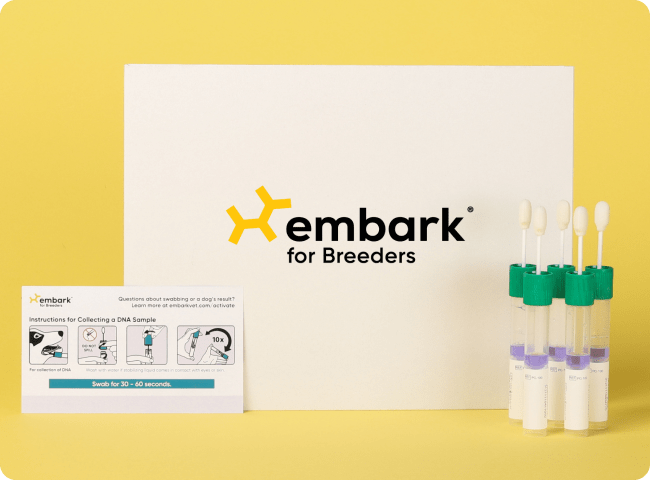Can you register a dog with a DNA test? This is a question we’re asked often. Let’s look at the difference between a registered purebred dog and a single-breed ancestry DNA result and why the two terms are very different and should not be used interchangeably.
What’s the difference between purebred status and single-breed DNA ancestry?
The American Kennel Club (AKC) is the country’s oldest and largest purebred dog registry and the governing body of the sport of purebred dogs. How a purebred dog can be registered with a registry depends on each registry’s rules. For example, the AKC will only register a dog if both parents are AKC registered AND the litter of puppies from that breeding is also registered by the owner of the dam at the time of the whelping.

While there are exceptions to the rules, such as applying for AKC registration if the dog has been registered with another domestic or foreign registry that has reciprocal rights with the AKC, there is no avenue to get AKC registration using a DNA test that shows a dog to be 100% single breed. The definition of purebred is different from single-breed ancestry.
Basically, a registry will issue pedigrees that show a dog’s purebred status because it represents a sire (father) and a dam (mother) that each had AKC registration or “AKC papers,” and the offspring of this mating is eligible for AKC registration. A breeder can apply to the AKC to get a litter registration and send off individual applications for registration to new puppy owners.

What is single-breed ancestry?
Breed ancestry, as determined by a DNA test, differs from purebred status. A single breed or 100% breed result from a DNA test shows that segments of an individual dog’s DNA are shared among dogs of the same breed.

Embark uses a proven scientific approach to assess the genetic makeup of the dog using a process involving reference panels. A reference panel is a group of dogs that have all been registered as purebred in a particular breed. When a dog shows 100% Chihuahua, for example, this means the dog has the same genetic signature or shared segments of DNA as the purebred Chihuahuas in the reference panel.

Embark’s reference panel database of tens of thousands of purebred dogs is the largest and most diverse in the world. This database is used to identify a genetic signature unique to the breed but does not include every dog in every breed.
What about DNA parentage testing as proof of a purebred dog?
Some registries do conduct canine parentage testing to determine, through exclusion, who the father or fathers of a litter might be. This is a separate process using DNA testing that does not test for breed ancestry but rather looks at a specific number of genetic markers to determine parentage. Registries employ this use of DNA testing for pedigree and record-keeping verification, not purebred status.



